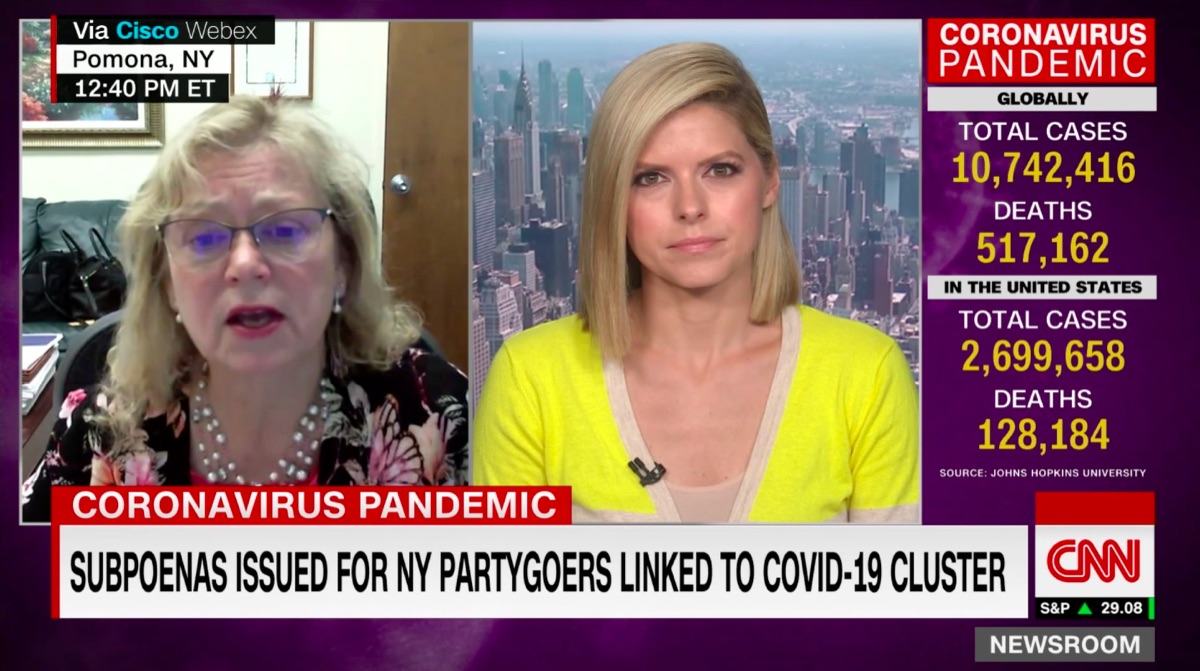In a July 2 appearance on CNN, the county’s health commissioner, Patricia Schnabel Ruppert, DO, said that the individuals’ reluctance impeded her department’s investigation into how far coronavirus had—and could still potentially—spread due to the party, which was hosted by someone who was already showing symptoms at the time. Eight attendees of the party so far have tested positive. “There are those in the community who have been home for a number of months and they’re just really tired of it, they’re fed up, and they want to be out. They don’t want to have to answer to government, to any health officials,” Ruppert said. “And some people just don’t maybe understand the importance of this, which of course with education we’re trying to explain, and have people understand the reason that we need to find out who their contacts are, where they’ve been, when that was, so that we can continue to decrease the number of cases in New York.” Contact tracers have proven to be essential to slowing the spread in countries, like New Zealand, that have almost totally wiped out coronavirus. Their mandate is to determine who an infected person has come into contact with so that they can self-isolate and/or be tested themselves. Contact tracing decreases the amount of people who are unknowingly spreading the disease, but it does require citizens to give up some personal information as to where they’ve been and who they’ve seen.ae0fcc31ae342fd3a1346ebb1f342fcb In the case of this Rockland County party, the contacts were given a choice when the local government issued subpoenas for their cooperation. Each came with an up to $2,000 per day fine. “I have eight responses,” Ruppert said, when asked if the subpoenas were effective. “It’s amazing how smart some people got,” Rockland County Executive Ed Day told CNN. “Everybody is complying and helping us, which is all that we’re trying to have happen, is work with us. We’re not looking to be punitive here.” Speaking to Politico, director of the Center for Public Health Law and Policy at Arizona State University James Hodge said that Rockland County officials were well within their rights to float the fines, and that First Amendment rights d0n’t trump matters of public health and the well-being of others. RELATED: For more up-to-date information, sign up for our daily newsletter. “What you’ve got here is a legitimate use of public health emergency powers. If you don’t want to participate in contact tracing, you don’t have to,” Hodge said. “But resisting the mere effort … can lead authorities to use their subpoena powers, because they’ve got it.” As this one New York county’s efforts to track down a cluster were effective, it’s highly possible that similar legal action may take place in other parts of the U.S., as communities struggle with COVID-19. And for more on mistakes we’re making, This Error Is What’s Causing COVID-19 to Surge in the U.S., Fauci Warns.
